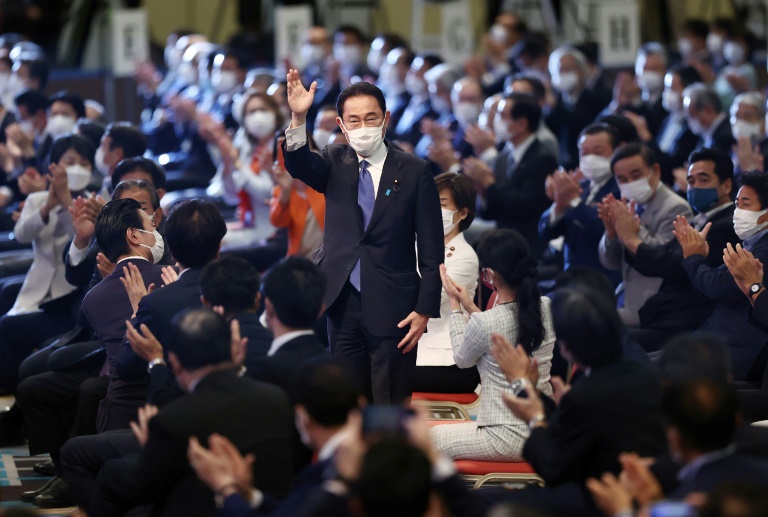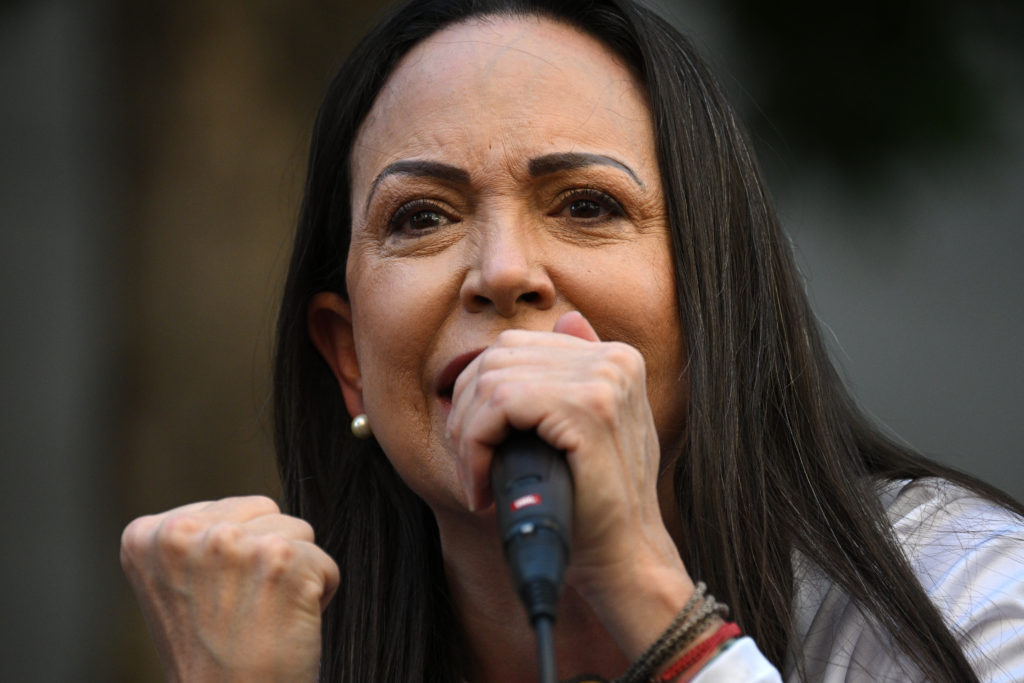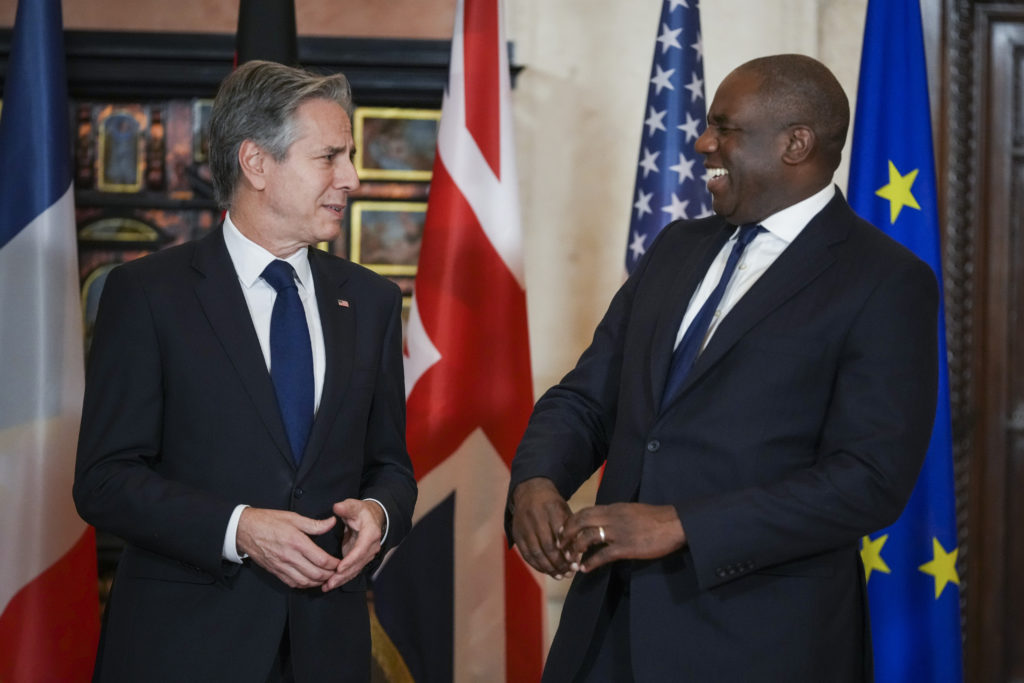Japan’s ruling party elected former foreign minister Fumio Kishida its new leader on Wednesday, setting him on course to become the next prime minister of the world’s third-largest economy.
The soft-spoken centrist defeated popular vaccine chief Taro Kono in an unusually close race to succeed Prime Minister Yoshihide Suga, who is stepping down after just a year in office.
Kishida, 64, will be confirmed as the new premier in a vote in parliament on October 4 and will then lead the Liberal Democratic Party (LDP) into general elections that must happen by November.
Speaking after his win, he called on members to “show the public that the LDP has been reborn, and appeal for their support.”
The scion of a political family from Hiroshima, Kishida has long targeted the prime minister’s office and ran unsuccessfully for party leader last year, losing out to Suga.
He became the first candidate to step into the race this time around and ran on a platform of pandemic stimulus, touting himself as a listener who carried a suggestion box to events to receive proposals from citizens.
“My skill is to really listen to people,” he said after his win Wednesday.
“I’m determined to make efforts with everyone for an open LDP and a bright future for Japan.”
The race was a tight one, with Kishida edging Kono by just a single vote in the first round of voting by Liberal Democratic Party members and parliamentarians, before taking the second round with 257 votes to Kono’s 170.
Two other candidates, hawkish right-winger Sanae Takaichi and feminist former gender equality minister Seiko Noda, did not advance beyond the first-round vote.
A former LDP policy chief, Kishida sought to capitalise on public discontent over Suga’s response to the pandemic, which has seen his government’s approval ratings slump to record lows.
– ‘A bet for stability’ –
Kishida’s low-key persona has at times been described as a lack of charisma, and his policy ideas suggest more continuity than change.
But in the end, that won more support within the party, who shied away from Kono’s reforming and direct style.
“The powers within Jinminto (LDP) have decided for a variety of reasons that Kishida is a better bet for stability, longevity, etcetera. They’ve made this bet before,” said Brad Glosserman, a senior advisor to the Pacific Forum.
For Kishida, “the expectations are low, which could be good… because if you expect little of someone it is easy to surprise,” he told AFP.
In his victory speech, Kishida pledged to unleash economic relief measures worth tens of trillions of yen (billions of dollars), which will be key to shoring up support before he leads the LDP into general elections.
The party is expected to retain its parliamentary majority, but could lose some seats over public discontent with the government’s handling of the pandemic.
Generally, Kishida is expected to hew to the government’s existing path on defence, foreign and economic policy.
“Kishida shares the same policy core as Suga and (predecessor Shinzo) Abe,” said Corey Wallace, an assistant professor at Kanagawa University who focuses on Japanese politics.
“What he really, really stands for is a little bit unclear… nothing really stands out as Kishida’s personal hobbyhorse issue,” he told AFP.
Kishida has called for greater economic equality, urging a “politics of generosity”, but stopped short of suggesting hiking taxes.
And despite his liberal reputation, he was notably more reticent than Kono on hot-button issues like legalising gay marriage or allowing married couples to have different surnames.
He faces a series of immediate challenges, including post-pandemic economic recovery and confronting threats from North Korea and China, as well as questions about longevity, with Suga’s one-year term reviving memories of a period where Japan shuffled through new premiers almost annually.









